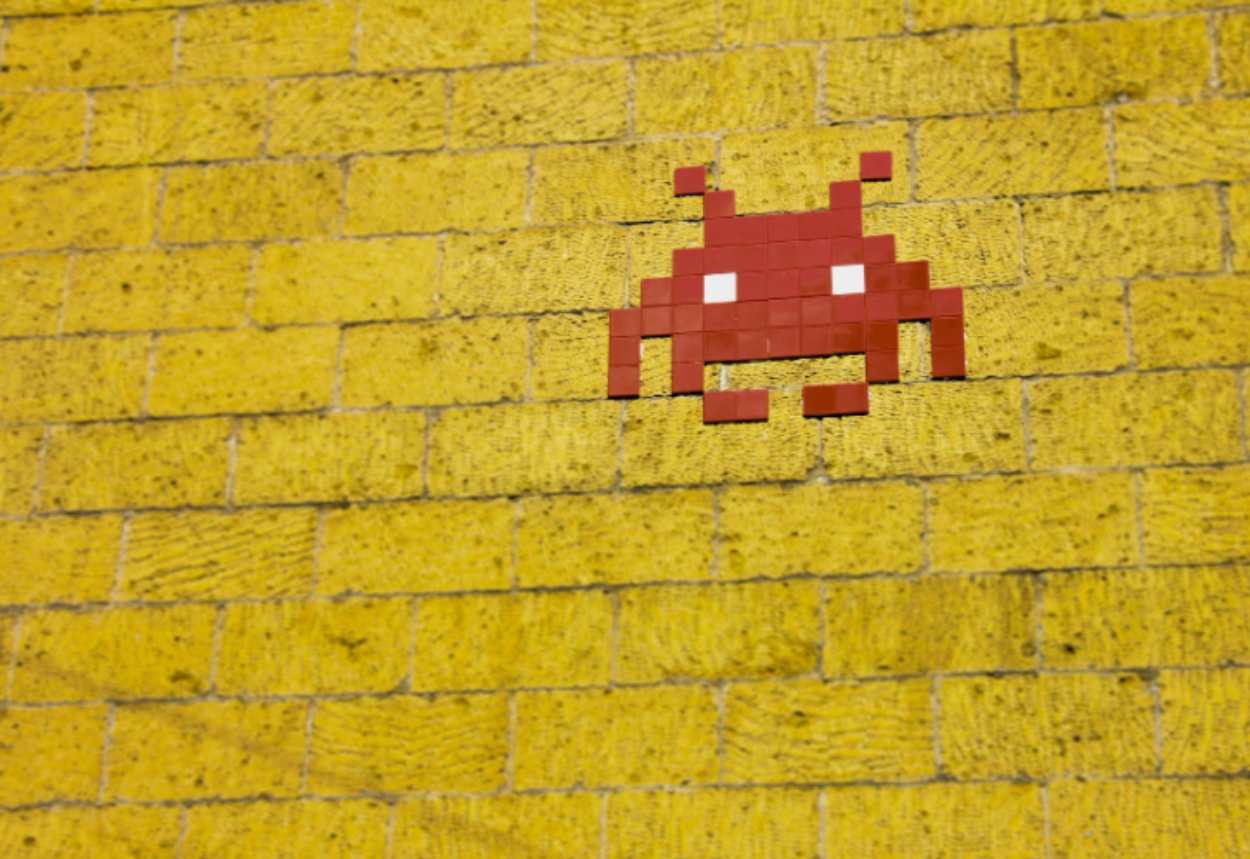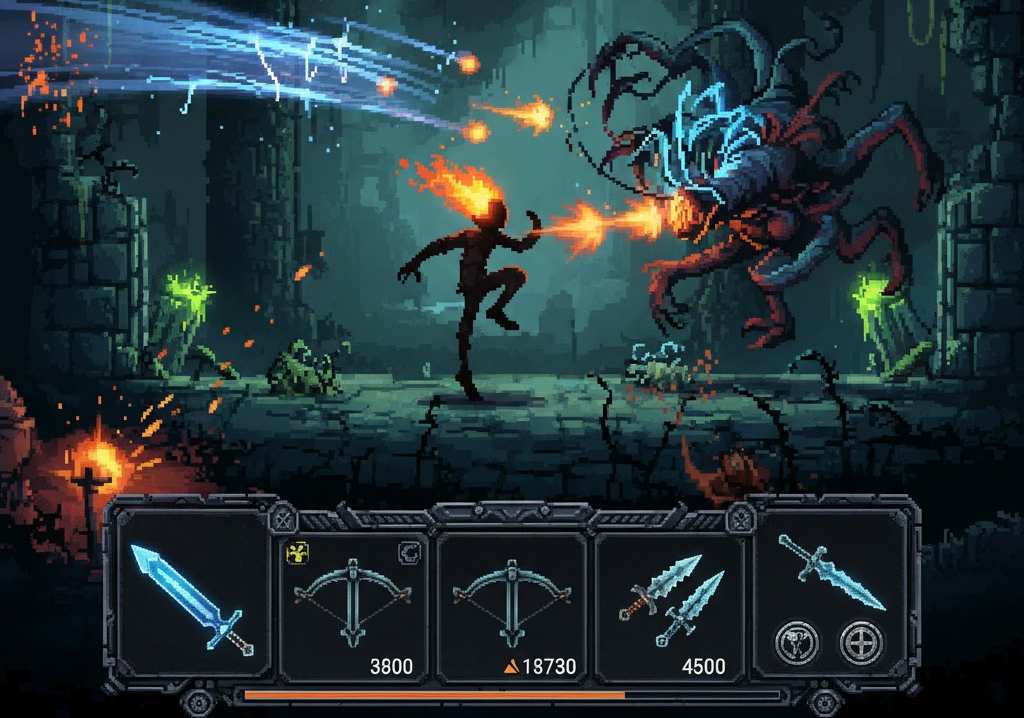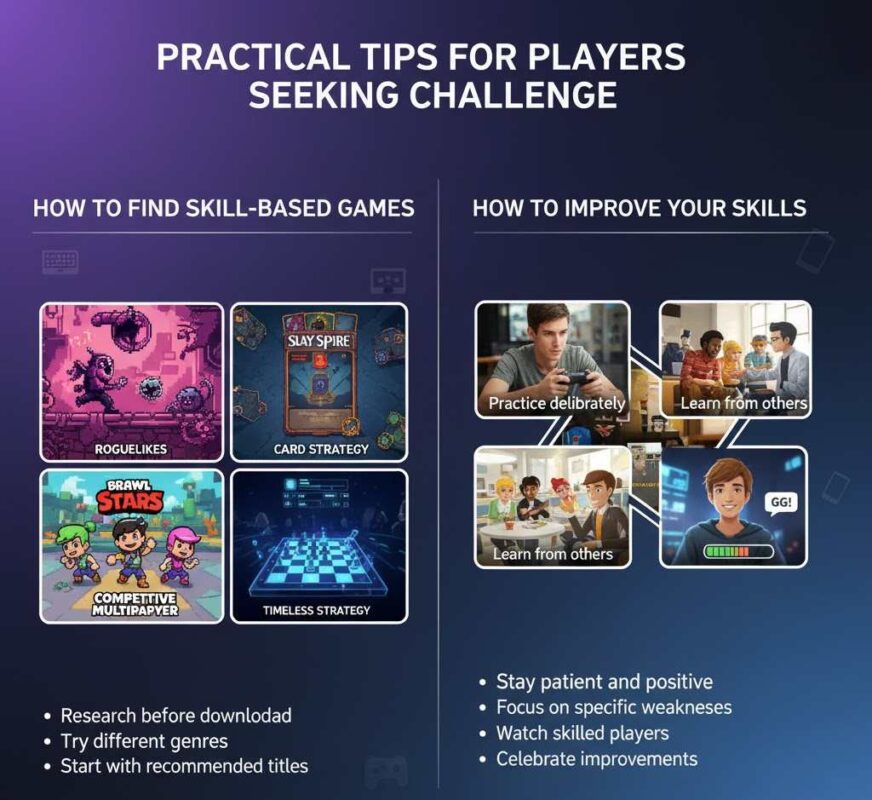No More Easy Wins! Gamers Want Real Challenges Again

Gaming has undergone significant changes over the past few years. For a while, many games became easier and easier. Players could win without much effort. Auto-play features allow games to run automatically. Rewards came quickly with just a few taps. But something interesting is happening now. Players are growing tired of easy wins. They want games that challenge their thinking, test their skills, and provide a genuine sense of achievement when they succeed.
This shift is not just a slight trend. It is changing how games are created, how players interact with one another, and what types of games become popular. From mobile games to console titles, from casual puzzle games to competitive shooters, the message is clear: gamers want to be rechallenged.
Why Players Are Tired of Easy Games
Problem with Auto-Play and Quick Rewards
Many modern games try to make things as simple as possible. The idea was to let anyone play without frustration. Games added features like:
- Auto-battle systems that fight for you
- One-tap gameplay that needs minimal input
- Guaranteed rewards just for logging in
- Pay-to-win mechanics that let you skip challenges
Initially, these features appeared helpful. They let busy people enjoy games without investing too much time. But over time, something went wrong. Players started feeling empty after playing. Wins no longer felt special because they were not earned through effort or skill.
What Makes a Win Feel Good
Psychological research shows that humans tend to feel more satisfied when they work towards a goal. This phenomenon is known as the “effort justification effect.” When we put in effort to achieve a goal, we value that achievement more highly. Easy rewards do not trigger the same feeling of accomplishment.
In gaming, this means:
- Earned victories feel better than given rewards
- Learning curves create engagement by showing progress
- Overcoming difficulty builds attachment to the game
- Skill improvement gives lasting satisfaction that quick wins cannot match
Players have figured this out. They are looking for games that respect their intelligence and time by offering real challenges.
Rise of Skill-Based Mobile Gaming

Popular Games That Demand Real Skill
Mobile gaming was once associated with simple, casual experiences. Not anymore. Several mobile games now offer deep, challenging gameplay:
Dead Cells brings console-quality action to mobile devices. This roguelike game requires:
- Quick reflexes to dodge enemy attacks
- Strategic thinking to choose the right weapons
- Pattern recognition to learn enemy behaviors
- Resource management to survive each run
Each time you play, the game is different. You must adapt to new situations and improve your skills to progress further.
Balatro appears to be a simple card game, but it quickly becomes a complex puzzle. Players must:
- Understand probability and odds
- Build effective card combinations
- Plan several moves ahead
- Adjust strategies based on what cards appear
The game rewards players who think like poker professionals, calculating risks and maximizing their chances in every hand.
Honkai: Star Rail demonstrates that turn-based games can be challenging as well. Success requires:
- Building balanced teams with good synergy
- Understanding enemy weaknesses
- Timing special abilities correctly
- Experimenting with different strategies
The game does not hold your hand. You need to learn the systems and make smart decisions to win tough battles.
How Mobile Devices Handle Complex Gameplay
Some people thought mobile devices could not support truly skill-based games. But technology has improved. Modern smartphones have:
| Feature | How It Helps Skill-Based Games |
|---|---|
| Powerful processors | Run complex game mechanics smoothly |
| Better touchscreens | Provide precise control for quick reactions |
| Larger screens | Show more information for strategic decisions |
| Improved battery life | Support longer, more involved gaming sessions |
Game developers have also improved their ability to design controls for touchscreens. They create interfaces that feel natural and responsive, letting players execute complex actions with precision.
Roguelike Games Lead the Way
Roguelike games have become especially popular on mobile devices. These games feature:
- Permanent death – when you lose, you start over
- Random generation – each playthrough is unique
- Gradual unlocks – you gain new options over time
- Skill-based progression – getting better is the only way forward
Games like Hades, Slay the Spire, and Dead Cells have demonstrated that players enjoy this type of challenge. These games do not promise easy wins. Instead, they promise that your skills will improve with practice and that this improvement will feel rewarding.
Skill-Based Gaming in Online Casinos
Shift from Slots to Strategy Games
Online casinos are experiencing the same trend. For years, slot machines dominated these platforms. Slots require no skill – you press a button and hope for luck. But players are now gravitating toward games that involve strategy:
Blackjack requires players to:
- Learn basic strategy charts
- Count cards when possible
- Make calculated decisions about hitting or standing
- Manage their bankroll wisely
Poker demands even more skill:
- Reading opponent behavior
- Understanding probability deeply
- Making strategic bets
- Controlling emotions under pressure
Live Dealer Games add another layer. Players face real dealers through video streams, making the experience more engaging and requiring better focus and decision-making skills. Many trusted and top rated casino platforms are now prioritizing these skill-based options in their game libraries.
Why Strategy Games Are Growing
Casino platforms have noticed that players who enjoy strategic games:
- Play for longer sessions
- Return more frequently
- Engage more with the platform
- Feel more satisfied with their experience
Even when they lose, players who use skill feel they have some control over the outcome. This makes the experience more engaging than pure chance games.
Casino Promotions Reflect the Change
Many casino sites now offer bonuses specifically for skill-based games:
- Bonus chips for blackjack tables
- Tournament entries for poker rooms
- Cashback on live dealer losses
- Reduced house edge promotions
These promotions show that casinos understand what players want. They are encouraging players to try games where skill is a key factor.
Competitive Gaming and Esports on Mobile
Call of Duty: Mobile and Competitive Play
Call of Duty: Mobile started as a casual shooter but has evolved into a serious competitive game. Players now:
- Study map layouts to find strategic positions
- Practice movement and aiming techniques
- Learn weapon statistics and optimal loadouts
- Coordinate with teammates using voice chat
The game’s ranked mode attracts millions of players who take the competition seriously. Climbing the ranks requires dedication and skill improvement.
PUBG Mobile and the Tournament Scene
PUBG Mobile has built a massive esports ecosystem. The game features:
| Tournament Level | Prize Pool Range | Skill Required |
|---|---|---|
| Local competitions | $1,000 – $10,000 | Intermediate |
| Regional championships | $50,000 – $200,000 | Advanced |
| Global finals | $1,000,000+ | Professional |
Players spend hours practicing to compete at high levels. They analyze game replays, study strategies, and train their reflexes. This level of commitment demonstrates the seriousness with which mobile gaming is now regarded.
Why Mobile Esports Matter
Mobile esports prove that skill-based gaming on phones is legitimate. When people watch tournaments, they see:
- Impressive displays of skill and strategy
- The depth possible in mobile games
- That dedication and practice pay off
- Role models who inspire improvement
This visibility encourages more players to take mobile gaming seriously and work on their skills.
How Game Developers Are Responding
Adaptive Difficulty Systems
Modern games use intelligent systems to adjust challenge levels. These systems:
- Monitor player performance to understand skill levels
- Adjust enemy behavior to stay challenging but fair
- Scale resources to maintain tension without frustration
- Provide options for players to choose their difficulty
The goal is not to make games easier, but to make them appropriately challenging for each player’s skill level.
Designing for Short Sessions
Mobile game developers face a unique set of challenges. Players often have only a few minutes to play. However, they still seek meaningful and challenging experiences. Developers solve this by:
Creating tight gameplay loops:
- Each session has clear goals
- Progress feels meaningful even in 5-10 minutes
- Skills learned in one session apply to the next
Offering quick challenges:
- Daily missions that test specific skills
- Time-limited events with special rewards
- Boss rush modes for experienced players
Saving progress intelligently:
- Games pause without penalty
- Progress saves automatically
- Players can resume exactly where they left off
Balancing Challenge with Accessibility
Making challenging games does not mean making them unfair or frustrating. Good developers:
Teach mechanics gradually:
- Early levels introduce one concept at a time
- Tutorial stages let players practice safely
- Difficulty ramps up as players demonstrate understanding
Provide learning tools:
- Practice modes to master techniques
- Replay systems to analyze mistakes
- Guides that explain advanced strategies
Include assist options:
- Cooperative modes for harder sections
- Optional hints without forcing them
- Difficulty settings that let players choose their challenge
Many studios are implementing co-op systems where players can team up to tackle difficult content together. This approach maintains the challenge while adding a social element that makes tough sections more manageable and enjoyable.
Social Side of Challenge
How Difficult Games Build Communities
When games become harder, players naturally seek help and connection. This creates vibrant communities:
Discussion forums where players:
- Share strategies and build
- Debate optimal approaches
- Help newcomers learn the basics
- Celebrate achievements together
Video content including:
- Tutorial guides for tough sections
- Speedruns showcasing mastery
- Challenge runs with special rules
- Analysis of game mechanics
Discord servers that provide:
- Real-time advice for stuck players
- Team formation for multiplayer
- Community events and competitions
- Friendship and social connection
Value of Shared Struggle
Psychologists have found that shared challenges create stronger bonds. When players overcome difficult content together, they:
- Feel more connected to the community
- Develop lasting friendships
- Stay engaged with the game longer
- Become advocates who recommend the game
Games like Dark Souls gained fame partly due to their dedicated community. Players bonded over shared struggles and celebrated each other’s victories.
Learning from Other Players
Skill-based games create natural teaching opportunities:
| Learning Method | How It Works | Benefit |
|---|---|---|
| Watching streams | See skilled players in action | Learn advanced techniques |
| Reading guides | Study detailed strategy breakdowns | Understand complex mechanics |
| Joining clans | Play with experienced teammates | Get personalized coaching |
| Participating in forums | Ask questions and discuss | Gain diverse perspectives |
This social learning makes skill development faster and more enjoyable. Players do not struggle alone; they improve together.
Expert Opinions on the Skill-Based Gaming Trend
What Industry Professionals Say
Game designer Jane McGonigal, author of “Reality is Broken,” notes: “Games are teaching us that we are capable of more than we think. The best games show us what we can achieve when we’re properly challenged and motivated.”
This philosophy drives the current trend. Developers understand that players want to discover their own capabilities through gameplay.
Academic Perspective
Dr. Jesper Juul, in his book “The Art of Failure,” explains why players enjoy challenging games: “Failure in games is unique because failing in a game is not just about the game – it is about you. When we fail in a game, we feel responsible, and this makes us want to improve.”
This insight explains why challenge is so significant. Without the possibility of Failure, success becomes meaningless. Players need to feel that their actions have an impact.
Player Testimonials
Looking at player communities reveals similar themes:
“I was bored with games that played themselves. Dead Cells made me feel like I was actually gaming again, not just watching animations.” – Mobile Gaming Forum User
“Learning poker strategy changed how I view casino games. It’s not just luck anymore; I feel in control.” – Online Casino Player
“Ranked mode in Call of Duty: Mobile pushed me to improve. I went from bronze to diamond by actually learning and practicing.” – Competitive Mobile Gamer
These voices confirm that the desire for challenge is widespread and genuine.
Practical Tips for Players Seeking Challenge

How to Find Skill-Based Games
If you want more challenging gaming experiences, consider these tips:
Research before downloading:
- Read reviews that mention difficulty
- Watch gameplay videos to see complexity
- Check if the game has competitive modes
- Look for games with active communities
Try different genres:
- Roguelikes for varied challenges
- Strategy games for mental exercise
- Fighting games for precise execution
- Rhythm games for coordination skills
Start with recommended titles:
- Dead Cells (mobile action)
- Slay the Spire (card strategy)
- Brawl Stars (competitive multiplayer)
- Chess apps (timeless strategy)
How to Improve Your Skills
Getting better at challenging games requires the right approach:
Practice deliberately:
- Focus on specific weaknesses
- Set small, achievable goals
- Track your progress over time
- Celebrate improvements
Learn from others:
- Watch skilled players
- Read strategy guides
- Ask questions in communities
- Find mentors or coaches
Stay patient and positive:
- Accept that improvement takes time
- Learn from mistakes instead of getting frustrated
- Take breaks when feeling stuck
- Remember why you enjoy the challenge
Avoiding Burnout
Challenging games can sometimes become too intense. Protect your enjoyment by:
- Playing multiple games to avoid monotony
- Taking breaks when frustration builds
- Remembering games should be fun
- Not comparing yourself too harshly to others
- Celebrating small victories
Future of Skill-Based Gaming
Trends to Watch
The skill-based gaming trend is likely to grow stronger. Several developments suggest this:
| Category | Feature | Description |
|---|---|---|
| AI-Powered Opponents | Learn your playstyle | AI analyzes your actions, strategies, and tendencies to adjust future encounters. |
| Adapt to your skill level | Difficulty dynamically scales to match and challenge your current performance. | |
| Provide personalized challenges | Tailored missions or opponents based on your unique strengths and weaknesses. | |
| Feel more human-like | AI behaviors mimic real player decision-making, unpredictability, and tactics. | |
| Cross-Platform Competition | Mobile vs. Console Players | Enables fair matchmaking and shared gameplay between devices. |
| Unified ranking systems | A single leaderboard tracks player performance across all platforms. | |
| Larger competitive communities | More players connected globally, enhancing matchmaking and diversity. | |
| More tournament opportunities | Broader participation and prize pools through multi-platform events. | |
| Virtual & Augmented Reality | Physical skill challenges | Incorporates movement and coordination as core gameplay mechanics. |
| Spatial reasoning tests | Tests your ability to perceive and interact with 3D environments. | |
| Immersive strategic gameplay | Combines physical presence with real-time tactical decision-making. | |
| New types of competitive experiences | Creates innovative formats and genres unique to AR/VR environments. |
How Casual and Hardcore Gaming Will Coexist
Not everyone wants extreme challenges all the time. The future will likely include:
| Category | Feature | Description | Player Benefit |
|---|---|---|---|
| Flexible Difficulty | Options for casual or intense play | Players can switch between relaxed or challenging gameplay depending on their mood or time available | Keeps games enjoyable for all skill levels |
| Separate modes for different moods | Story mode, competitive mode, or hardcore mode cater to different playstyles | Offers personalization and replay value | |
| Reward systems that work for both | Balanced achievements that recognize both casual progress and high-skill mastery | Ensures fair motivation for every type of player | |
| Variety of Challenge Types | Puzzle games for logical thinking | Encourages reasoning, pattern recognition, and creativity | Builds cognitive skills |
| Action games for reflexes | Tests timing, reaction speed, and precision | Improves focus and coordination | |
| Strategy games for planning | Focuses on decision-making, long-term thinking, and adaptability | Sharpens analytical ability | |
| Social games for cooperation | Emphasizes teamwork, communication, and empathy | Strengthens community bonds | |
| Better Matchmaking | Fair pairings based on skill | Matches players with similar ability levels | Reduces frustration and promotes fair play |
| Protected spaces for beginners | Creates safe environments for newcomers to learn without pressure | Encourages player retention and confidence | |
| Competitive environments for experts | Dedicated arenas or ranked modes for advanced players | Keeps competition challenging and rewarding | |
| Options to choose your experience | Players decide whether they want casual fun or serious competition | Promotes freedom and satisfaction |
The goal is not to eliminate casual gaming, but to ensure challenging options exist for those who want them.
Conclusion
The era of auto-pilot gaming is ending. Players have discovered that easy rewards do not satisfy them. They want games that respect their intelligence, test their abilities, and give them real accomplishments to be proud of.
This shift is changing the entire gaming industry. Developers are creating more innovative, more challenging games. Communities are forming around shared struggles and a mutual desire for improvement. Even casual mobile games and online casinos are adding skill-based elements.
For players, this is good news. Whether you enjoy action games, strategy titles, competitive shooters, or card games, more options exist now for truly engaging, skill-based experiences. The games that succeed going forward will be those that challenge players appropriately, reward genuine skill, and create meaningful moments of triumph.
The message is clear: gamers are ready for more. They want games that challenge them, teach them, and help them improve their skills. And the gaming industry is finally delivering exactly what players have been waiting for.
References and Further Reading
Books:
- Schell, Jesse. “The Art of Game Design: A Book of Lenses.” CRC Press, 2019.
- Juul, Jesper. “The Art of Failure: An Essay on the Pain of Playing Video Games.” MIT Press, 2013.
- McGonigal, Jane. “Reality is Broken: Why Games Make Us Better and How They Can Change the World.” Penguin Books, 2011.
Research:
- For information on effort justification in psychology, refer to the research by the founders of cognitive dissonance theory.
- Mobile gaming statistics are available from Newzoo and Sensor Tower market reports.
- Esports industry data from Esports Charts and The Esports Observer.
Industry Resources:
- Game Developer Magazine for insights on design trends
- Gamasutra for developer perspectives and analysis
- Mobile gaming communities on Reddit (r/AndroidGaming, r/iosgaming)
Disclaimer
This article is for informational purposes only. Gaming experiences vary from individual to individual, and what constitutes an appropriate level of challenge differs for each player. When discussing online casino gaming, please note that gambling involves financial risk and may not be legal in all jurisdictions. Players should verify local laws, play responsibly, set limits, and never gamble more than they can afford to lose. The information about specific games is based on publicly available information and player communities as of the date of publication. Game features, mechanics, and business models may change over time. Always research games thoroughly before investing time or money.
